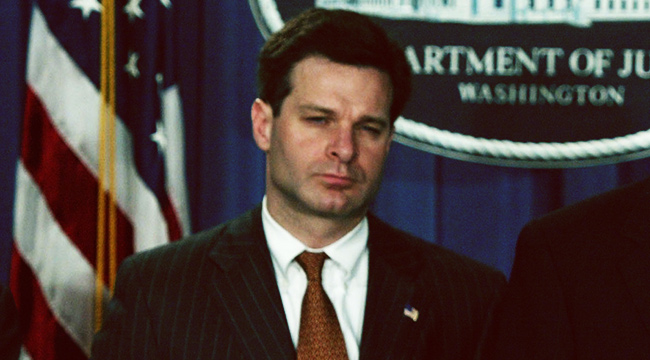
After a flirtation with Joe Lieberman, Trump took to Twitter to announce he’d be nominating Christopher Wray as director of the FBI. And most people wondered who, precisely, that is. Wray is an interesting choice for FBI director, and one that Trump might regret, provided that Wray accepts the appointment and gets the job.
Both are open questions. The Yale-educated Wray has connections, unsurprisingly, to the Trump Org; the law firm he works for, King & Spaulding, advises it, which is a potential conflict of interest. It took all of a minute to discover that King & Spaulding held Rosneft, Russia’s state-owned oil company, as a client, although it’s not clear if he has worked on those deals. And even if he hasn’t, his current work at his firm represents a host of potential conflicts of interest that may force Wray to recuse himself from multiple investigations.
But for many, it’s his recent political work that draws attention. Wray was Chris Christie’s personal attorney during Bridgegate, the scandal where Christie was accused of shutting down a bridge to spite a New Jersey mayor (thereby creating a massive traffic snarl that could have endangered lives, if anyone had needed medical assistance). Wray will likely face questions about his role in hiding Christie’s cell phone from defense attorneys representing Christie’s aides in that case.
Wray’s long history of working for private business and association with Christie probably appealed to Trump. But there’s a flipside to that coin: Wray is equally skilled at investigating wrongdoing. He began working as a government attorney in 1997 and quickly rose up the ranks. By 2003, Wray was assistant attorney general for the Criminal Division in the Department of Justice, specializing in fraud investigations and internal affairs. Trump likely thinks Wray can find leaks, but Wray’s signature achievement was overseeing the Enron investigation.
The main question Wray will have to face is essentially, whether he can do the job from a legal perspective. His ties to that many investigations and trials might simply make it untenable. And there is, of course, the question of just whether Wray wants to be in the middle of an increasingly sprawling investigation run by the man who essentially built the agency Wray is taking over. As of this writing, Wray hasn’t publicly commented on his nomination, but we’ll likely know soon enough if he’ll accept what promises to be a tough job.
